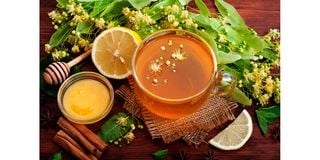You should also consult a doctor before taking herbal remedies

You should also consult a doctor before taking herbal remedies. Photo | Photosearch
What you need to know:
- Should Catherine be taking advice from her friend on the subject of herbs?
- Which herbs are safe for children to take? (Any individual under 18 is considered a “child”)
- Should David be taking echinacea?
Last week, a patient, Catherine, got in touch saying her friend had told her that she should give her son David a herb called echinacea. Her friend had been using it for her own son (aged 13) for a few years and he seemed better for it. While Catherine was keen to give David this immune-boosting herb, she was concerned that he might be allergic to the herb (David suffered from juvenile-onset arthritis).
The case above brings up some interesting points:
- Should Catherine be taking advice from her friend on the subject of herbs?
- Which herbs are safe for children to take? (Any individual under 18 is considered a “child”)
- Should David be taking echinacea?
Although we’ve all been known to do it, taking advice from a well-meaning, but nevertheless unqualified, friend on a health matter isn’t a good idea. Not only does the friend not know David’s full medical history, but she also has no idea why the suggested substance functions in the way it does. For that reason, she wouldn’t know what any potential side effects would be, and whether they were harmful. In the case of herbs, it’s particularly dangerous to take advice from someone who isn’t qualified. Herbs are very powerful medicines indeed and a lot of “modern” medicine actually comes from traditional herbalism. For example, aspirin is a purified version of a herb called white-willow bark.
The question of which herbs are safe for children is a tricky one. While the effects of nutrients like vitamins and minerals are generally very gentle, herbs can produce a very powerful effect. Children may respond faster to herbal medicine than adults, or the herb(s) in question might produce an unexpected result. For example, ginseng can cause hyperactivity in children. Nevertheless, herbs can be beneficial: the mild sedative properties of chamomile can be useful for hyperactive children, fennel is great for children’s diarrhoea, and chicory root is particularly valuable in easing children’s constipation. So rather than avoid herbs altogether, I’d suggest consulting a qualified health professional before buying something for your child. In fact, this advice applies to adult herbal preparation too.
But let’s get back to David. Should he be taking echinacea? That really is a question only his mother can answer. Although I think he shouldn’t have any sort of allergy issue with it, it would certainly be worth having a consultation to get to the bottom of his joint pains. Catherine’s husband (also my patient) has colitis, an inflammatory bowel disorder. Since allergies are also related to the bowel (large intestine), it’s simply vital that we tackle David’s issues now, before they have a chance to develop.




